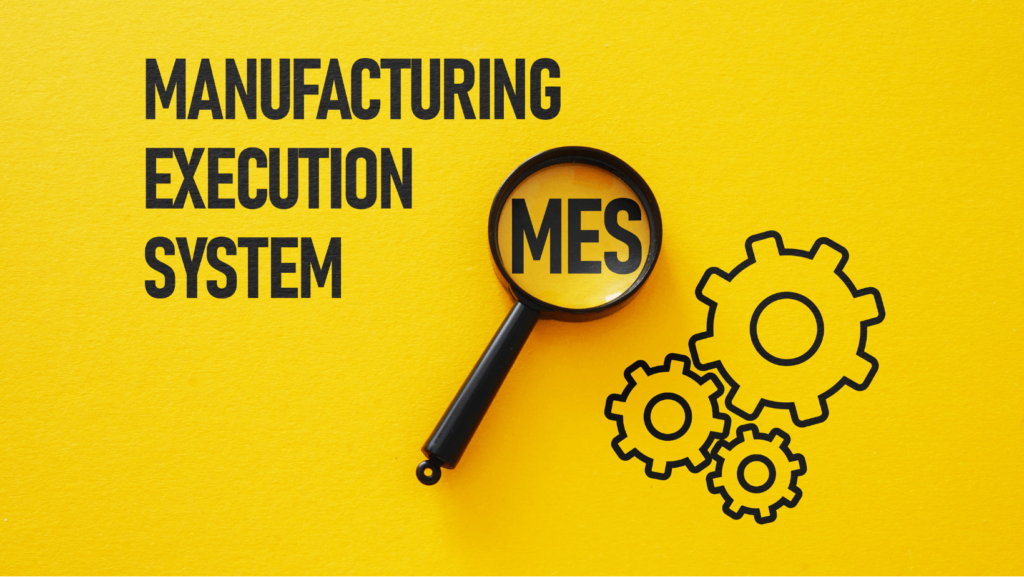Introduction
The dynamic development of new digital technologies over the recent years significantly impacts the pharmaceutical industry. In the era of Industry 4.0, companies must adapt their production processes to meet growing market and regulatory requirements. One of the key elements of this transformation is the implementation of Manufacturing Execution System (MES). MES systems become the foundation of production digitalization and are essential for realizing the vision of Pharma 4.0 – a modern, integrated, and optimized drug manufacturing chain.
What is Pharma 4.0?
Pharma 4.0 is a concept of adapting Industry 4.0 principles to the specifics of the pharmaceutical industry. According to the definition by ISPE (International Society for Pharmaceutical Engineering), it is an operating model based on achieving digital maturity, full integration of systems and processes, continuous optimization, and a data-driven approach. It is crucial to apply these principles to the entire product lifecycle, from research and development, through production, to distribution.
Pharma 4.0 puts connectivity, automation, real-time data analysis, and intelligent decision-making at the center. Its goal is to create a “factory of the future” where IT systems, machines, and people collaborate in an extremely efficient way. The resulting flexibility, productivity, and process control are to address the challenges faced by the pharmaceutical industry.
Challenges of modern pharmaceutical production
Manufacturing drugs is an extremely complex process. It must meet rigorous quality and safety standards while being subject to strict regulations. The main challenges include:
• Ensuring full compliance with Good Manufacturing Practice (GMP) requirements and regulations of agencies such as FDA or EMA.
• Maintaining high process repeatability and quality while under pressure to reduce costs. Variability of critical parameters must be minimized.
• Managing highly complex, multi-stage production processes. For biologics or advanced therapies, this also involves working with sensitive materials.
• Limitations resulting from the use of paper documentation and manual data collection. They not only slow down the process but also increase the risk of errors.

The answer to these challenges is a thorough digital transformation, enabling far-reaching automation, data integration, and production robotization. One of its foundations is the implementation of a modern MES-class system.
The role of MES software in realizing the Pharma 4.0 vision
Manufacturing Execution System is software used to manage and optimize production processes in real-time. It integrates data from automation systems, sensors, and other sources, enabling oversight of the entire manufacturing process. MES is a key element of the Pharma 4.0 digital ecosystem, connecting enterprise-level IT systems (e.g., ERP) with devices on the production floor.
The main functions of MES system include:
• Defining and enforcing standard operational procedures (SOP)
• Real-time parameter and event recording (electronic batch recording)
• Managing the flow of materials, products, and resources
• Monitoring performance and key process indicators (KPI)
• Production planning and scheduling
• Quality control and deviation management
• Generating reports and analyses supporting continuous improvement

MES implementation brings tangible benefits. Studies show that companies that have digitized production processes have achieved as much as 20-50% improvement in parameters such as overall equipment effectiveness (OEE), cycle time, raw material consumption, and inventory levels. Key benefits include:
• Process automation and elimination of human errors. Manual tasks are replaced by automated procedures, resulting in fewer deviations and higher product quality.
• Access to production data in real-time. MES collects and analyses data from various sources, providing information needed for quick response to problems and process optimization.
• System integration and better collaboration. MES connects data from different areas such as manufacturing, quality assurance, or supply chain. This facilitates decision-making and synchronization of activities.
• Compliance with regulations and quality standards. MES solutions include ready-made functionalities supporting validation, such as electronic signatures, access control, or change tracking. This reduces the effort required to ensure and demonstrate compliance.
• Scalability and flexibility. Modern MES solutions , based on cloud architecture, allow for seamless scaling of production and rapid implementation of changes, which is crucial in the era of personalized medicine.
In summary, MES forms the foundation of digital transformation in pharmaceutical production. It allows realizing the key assumptions of Pharma 4.0, such as vertical and horizontal integration, operation transparency, decision decentralization, and continuous optimization.
MES in practice – Tempo platform by Apprentice
An example of a modern MES solution, fully compliant with Pharma 4.0 principles, is the Tempo platform developed by Apprentice. It is a complete system for managing pharmaceutical production, based on cloud technology. Tempo combines a wide range of tools – from modules supporting manufacturing (electronic batch record, procedure and resource management, device data logging), to analytical and reporting tools.
The platform was designed specifically with the needs of the life-science industry in mind, such as compliance with GMP/GLP regulations or system validation. Thanks to pharma-ready solutions, Tempo significantly reduces the time and cost of implementation compared to traditional MES systems.

Tempo stands out from the competition thanks to features such as:
• Cloud-based architecture. MES system does not require investment in server infrastructure and can be quickly deployed at any scale.
• Comprehensiveness and flexibility. Tempo handles the full range of production processes. Thanks to configurable processes and procedures, it can be easily tailored to specific needs.
• User-friendly interfaces and support for wearable technologies. Employees receive instructions and enter data using intuitive applications, AR glasses, or voice commands, keeping their hands free for work.
• Artificial Intelligence to help make smarter decisions, automate complex workflows and optimize efficiencies.
• No code and open API options to ease the burden of integrations. Tempo can be seamlessly integrated with existing automation, LIMS, ERP, historians, QMS and more.
Tempo is successfully used by dozens of leading pharmaceutical and biotech companies worldwide. This shows that the benefits of production digitalization are achievable today with the right choice of tools.
Conclusions
In summary, implementing MES system compliant with Pharma 4.0 standards is a key element of the digital transformation of pharmaceutical production. Systems such as the Apprentice Tempo platform enable process automation, better data utilization, and more flexible production adjustment. This translates into higher quality, lower costs, and faster drug delivery to the market.
However, it should be remembered that technology alone is not everything. Equally important are the involvement of the entire organization, development of a new work culture, and continuous development of employees’ digital competencies. Only a holistic approach, encompassing people, processes, and tools, will allow for the full realization of the Pharma 4.0 potential.
Therefore, it is worth looking at the implementation of a modern MES system not only as a technological project but primarily as a strategic business initiative. An initiative that will help build the “factory of the future” – agile, intelligent, and ready for the challenges of the new era in the pharmaceutical industry.
Michał Wieczorek
Professional Validation Specialist

